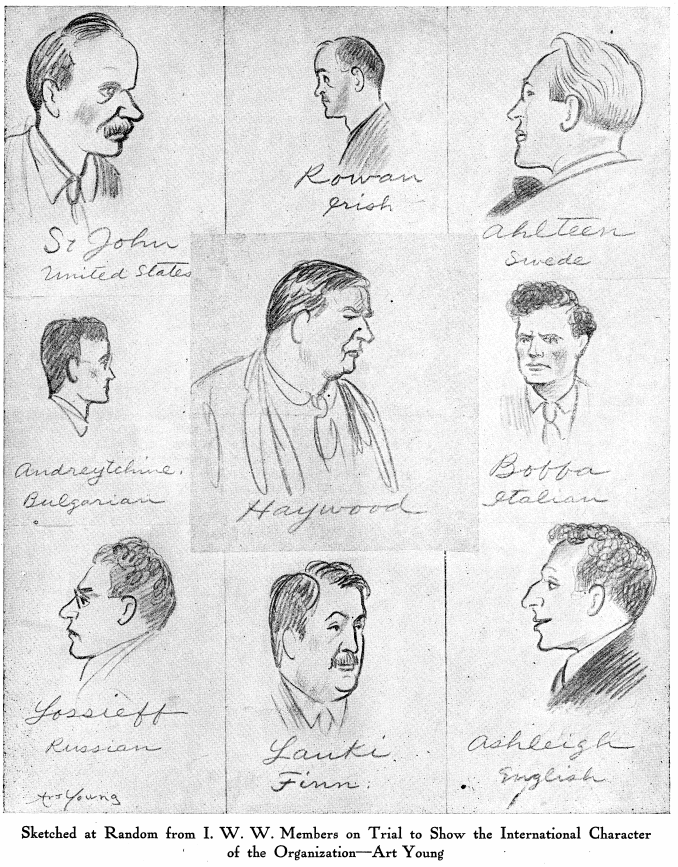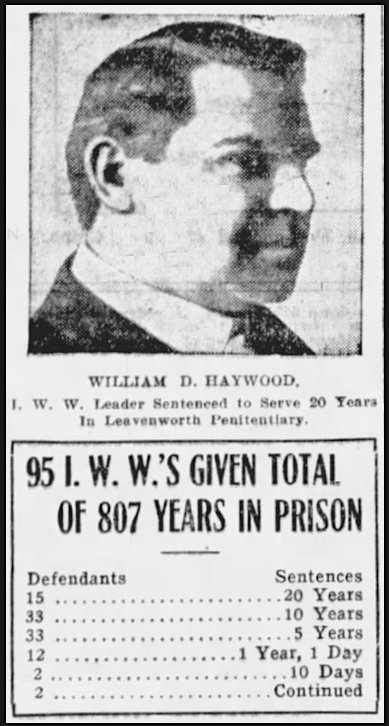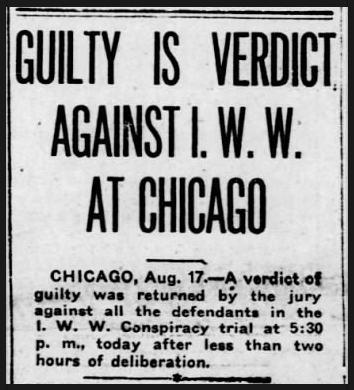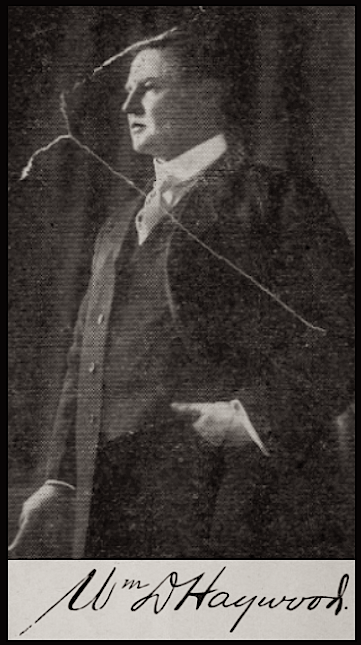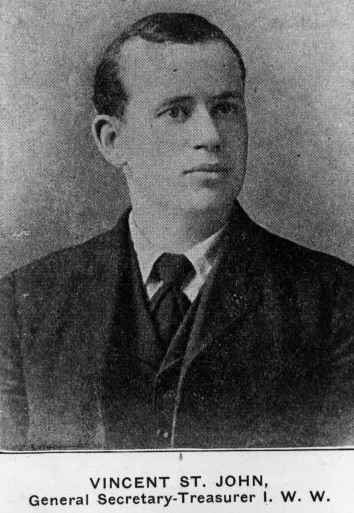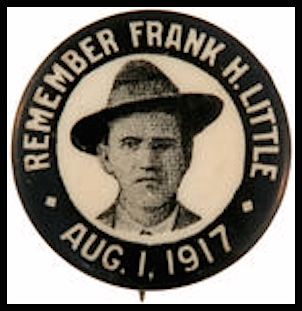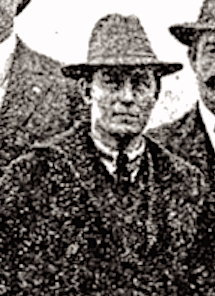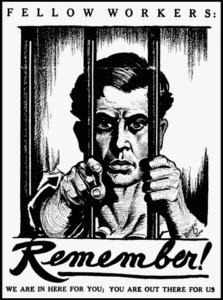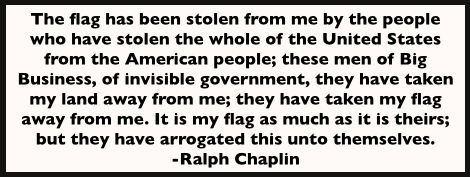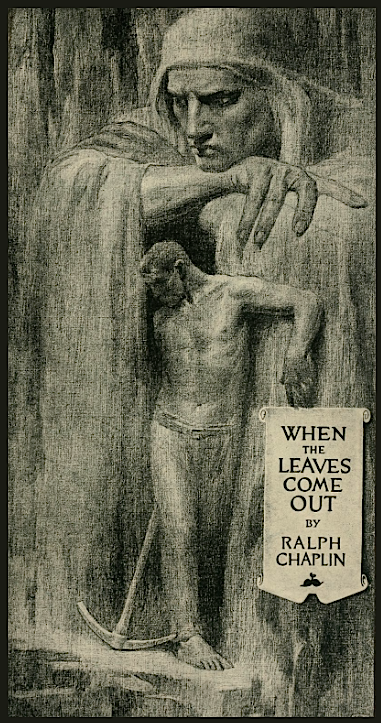Remember, this is the only
American working-class movement which sings.
Tremble then at the I. W. W.,
for a singing movement is not to be beaten.
-Jack Reed
~~~~~~~~~~~~~~~~~~~~~~~~~~~~~~~~~~~~~~~~~~~~~
Hellraisers Journal, Tuesday September 3, 1918
Chicago, Illinois – “Big Bill Haywood, with his black Stetson…”
From The Liberator of September 1918:
Part II of John Reed’s coverage of Chicago I. W. W. trial with drawings by Art Young-
The Social Revolution In Court
By Art Young And John Reed
—–In the early morning they come over from Cook County Jail, where most of them have been rotting three-quarters of a year, and march into the court-room two by two, between police and detectives, bailiffs snarling at the spectators who stand too close. It used to be that they were marched four times a day through the streets of Chicago, hand-cuffed; but the daily circus parade has been done away with.
Now they file in, the ninety-odd who are still in jail, greeting their friends as they pass; and there they are joined by the others, those who are out on bail. The bail is so high-from $25,000 apiece down-that only a few can be let free. The rest have been in that horrible jail-Cook County-since early last fall; almost a year in prison for a hundred men who love freedom more than most.
On the front page of the Daily Defense Bulletin, issued by headquarters, is a drawing of a worker behind the bars, and underneath, “REMEMBER! We are in HERE for YOU; You are out THERE for US! ”
There goes Big Bill Haywood, with his black Stetson above a face like a scarred mountain; Ralph Chaplin, looking like Jack London in his youth; Reddy Doran, of kindly pugnacious countenance, and mop of bright red hair falling over the green eye-shade he always wears; Harrison George, whose forehead is lined with hard thinking; Sam Scarlett, who might have been a yeoman at Crecy; George Andreytchine, his eyes full of Slav storm; Charley Ashleigh, fastidious, sophisticated, with the expression of a well-bred Puck; Grover Perry, young, stony-faced after the manner of the West; Jim Thompson, John Foss, J. A. MacDonald; Boose, Prancner, Rothfisher, Johanson, Lossiev….

